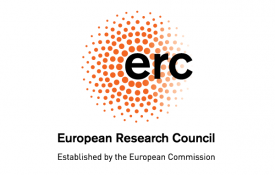-

The Future of EU R&I and the Long-Term EU Budget
ERC President Jean-Pierre Bourguignon speaks about the importance of research and innovation during a hearing at the European Parliament’s ITRE Committee.
-

NIH Funding Research on Tobacco Control Policies
Because of the health risks tobacco use continues to pose, the National Institutes of Health (NIH) has issued a funding opportunity announcement for research which improves the effectiveness of existing tobacco prevention and control strategies as well as reduces disparities in commercial tobacco use and secondhand smoke exposure.
-

Children Will Wait to Impress Others—Another Twist on the Classic Marshmallow Test
When it comes to self-control, young children are better able to resist temptation and wait for greater rewards if they take into consideration the opinions of others. [September 9, 2020]
-
Time to Ditch ‘Toxic Positivity,’ Experts Say: ‘It’s Okay Not To be Okay’
In the midst of a raging pandemic and widespread social unrest, these days it can feel as if reassuring platitudes are inescapable. “Everything will be fine.” “It could be worse.” “Look on the bright side.” But as well intentioned as those who lean on such phrases may be, experts are cautioning against going overboard with the “good vibes only” trend. Too much forced positivity is not just unhelpful, they say — it’s toxic.
-
In Defense of the Psychologically Rich Life
What does it mean to live a good life? This question has been debated and written about by many philosophers, thinkers and novelists throughout the course of humanity. In the field of psychology, two main conceptualizations of the good life have predominated: A happy life (often referred to as “hedonic well-being”), full of stability, pleasure, enjoyment and positive emotions, and a meaningful life (often referred to as “eudaimonic well-being”), full of purpose, meaning, virtue, devotion, service and sacrifice. But what if these aren’t the only options?
-
Talking About Racial Bias With the Author of ‘Biased’
Few can speak more authoritatively to the subject of racial bias than Stanford psychologist Jennifer Eberhardt. In her 2019 book Biased, the MacArthur genius unpacked decades of research, some performed by herself and her colleagues, that helps explain how bias operates powerfully, but sometimes subconsciously, in the brain. GEN caught up with Eberhardt to talk about how the subject of her book is playing out in the summer of George Floyd’s killing, how her work with police departments has helped decrease bias in arbitrary stops, and how we should talk about race with children. GEN: Your book Biased explores the science of how bias works, often on an unconscious level.

